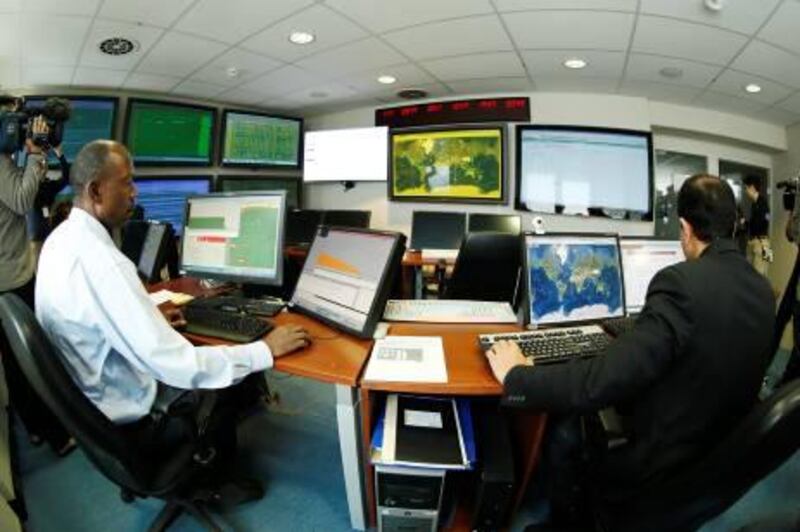Iran said yesterday that it began installing advanced centrifuges at its main uranium enrichment site a month ago.
The statement came as officials from the United Nations' nuclear watchdog were in Tehran in an attempt to reach an agreement on inspections to allow the "possible military dimensions" of Iran's nuclear programme to be investigated.
It was the third such trip to Tehran in as many months by a delegation from the International Atomic Energy Agency (IAEA).
Without a breakthrough, Iran faces a possible referral to the UN security council in March.
The UN agency wants to inspect the Parchin military complex near Tehran, where it suspects that until 2003, and possibly beyond, Iran carried out experiments with explosives capable of triggering a nuclear weapon. It also wants access to Iranian scientists and sensitive documents.
Tehran repeatedly has said it was willing to remove "any ambiguities" over its nuclear programme, which it insists is solely peaceful in nature.
But Iran seemingly was linking cooperation with the IAEA to what it calls recognition of its nuclear "rights" - meaning western acceptance of its uranium enrichment programme.
On the sidelines of a cabinet meeting yesterday, Mahmoud Ahmadinejad, the Iranian president, said Iran's right to pursue peaceful nuclear technology had to be respected.
Yesterday's talks were closely monitored by the so-called P5+1 group of nations, consisting of the five permanent members of the Security Council - the United States, Britain, Russia, China and France - along with Germany.
The group has been preparing to resume wider nuclear negotiations with Iran in Kazakhstan on 26 February.
Iran, keen to strengthen its hand, has sent mixed signals ahead of those talks.
Tehran drew a sharp rebuke from Washington this month when officials announced plans to install more advanced centrifuges at its main nuclear enrichment facility at Natanz.
Yesterday, the head of Iran's atomic energy organisation, Fereydoun Abbasi-Davani, announced Tehran had started implementing those plans a month ago.
But he was careful to point out that the new centrifuges - machines that enrich uranium gas by spinning it at supersonic speeds - were specifically for enrichment below 5 per cent purity, the kind needed to fuel nuclear power plants, and not the higher grade of 20 per cent that most concerns the West.
Meanwhile, Iran on Tuesday confirmed it was converting some of its stockpile of 20 per cent-enriched uranium into fuel for a reactor in Tehran that produces medical isotopes for cancer patients. That adds more time for diplomacy.
Israel, the region's sole nuclear-armed power, has warned that Iran could have enough enriched uranium for a bomb by June and has threatened military action to prevent Tehran reaching that threshold.
[ mtheodoulou@thenational.ae ]
twitter: For breaking news from the Gulf, the Middle East and around the globe follow The National World. Follow us





